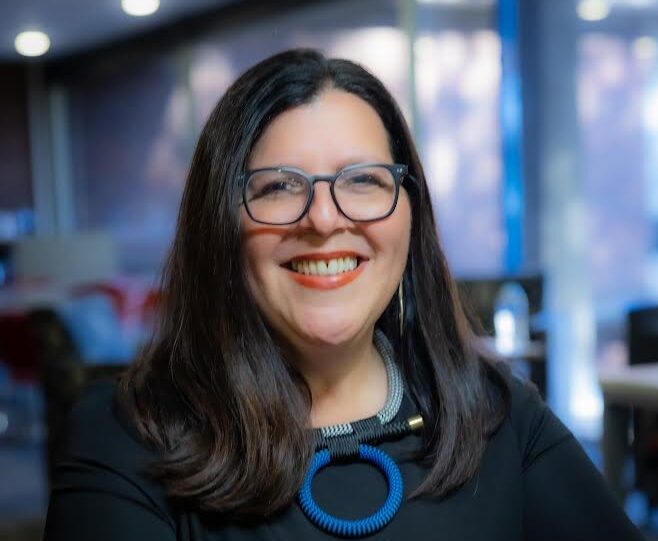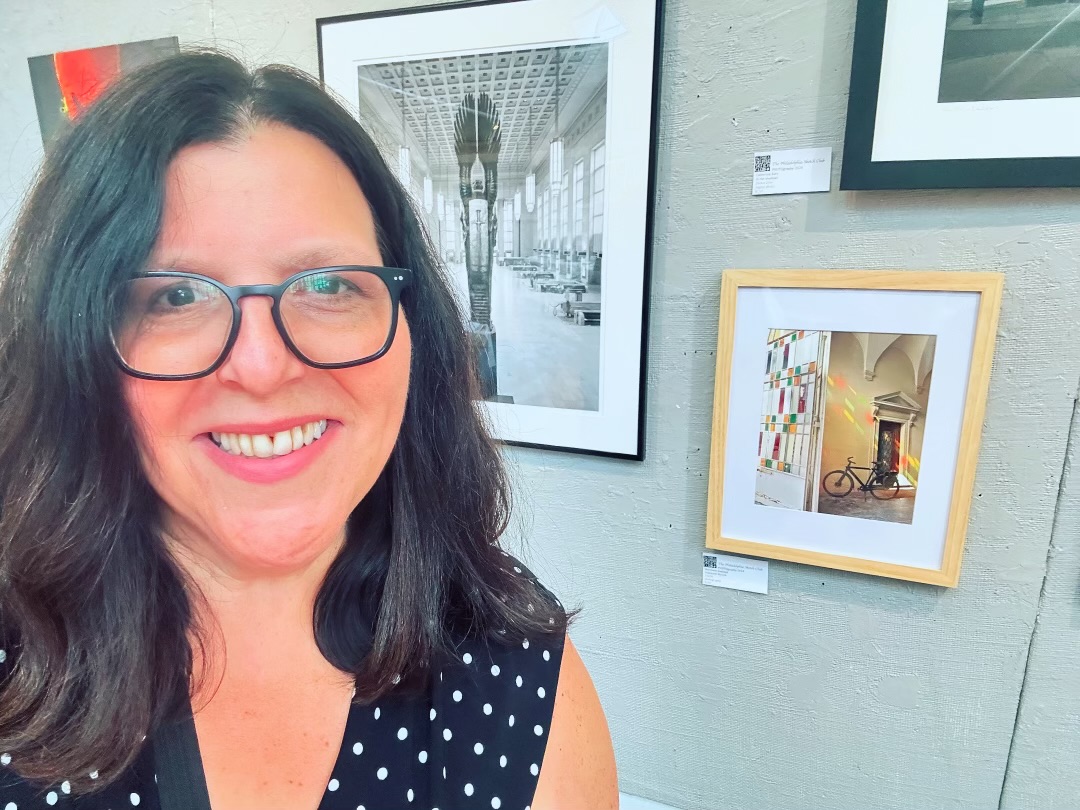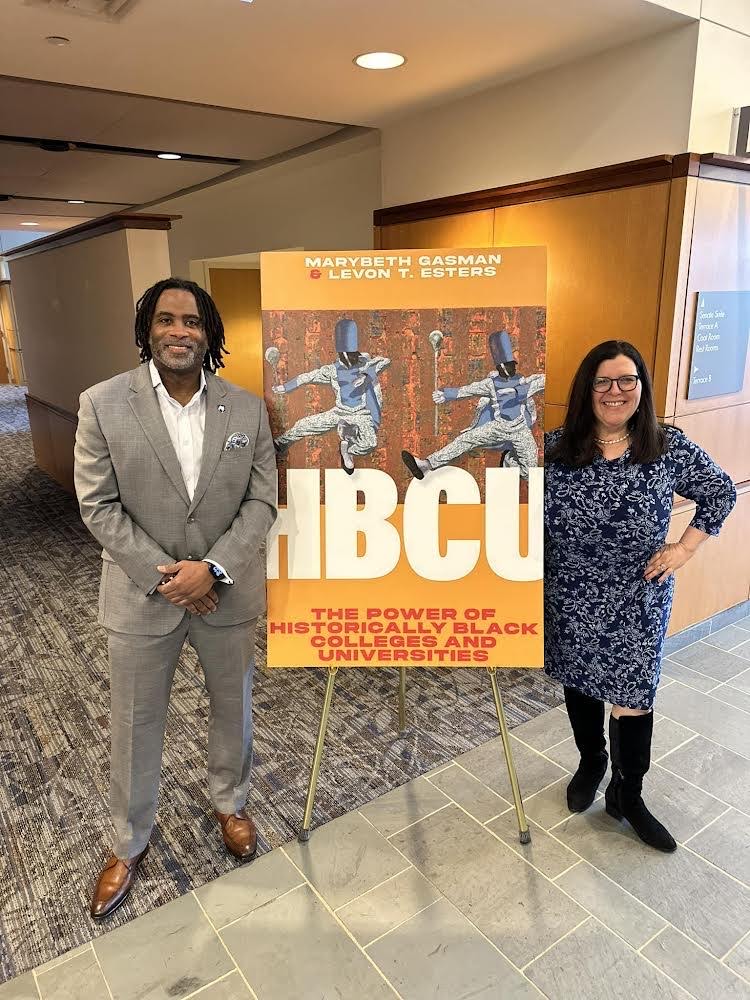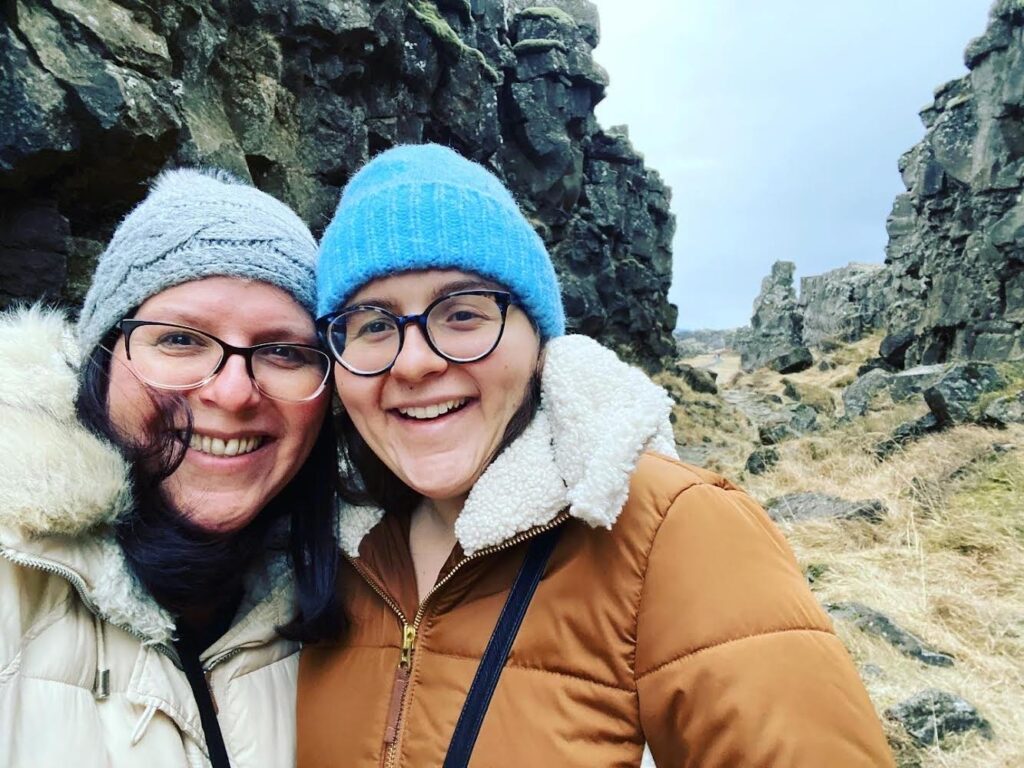
Marybeth Gasman is widely recognized as one of the nation’s top educators, with hundreds of articles and 35 books, including a spot on Education Week’s list of Top 30 Influential Educators. But beyond her impressive résumé, Marybeth wants people to know a few key things: she’s a mom, a passionate professor, an advocate for equity, a writer, a photographer, and an avid traveler.

Marybeth Gasman stands beside one of her photographs featured in a juried art exhibition—a vivid image of a bicycle, bursting with color.
A vocal champion of Historically Black Colleges and Universities (HBCUs), Marybeth doesn’t shy away from critiquing the broader American education system, particularly its lack of diversity in faculty and staff. But she doesn’t just talk about the problems—she offers concrete solutions to help institutions become more inclusive and equitable.
“I’m full of energy, and anyone who knows me will tell you that,” she says. “Most of the time, what I do doesn’t even feel like work—it feels like living my dream.”
Marybeth holds the prestigious Samuel DeWitt Proctor Endowed Chair in Education at Rutgers University and is a Distinguished Professor. She also serves as the Executive Director for both the Samuel DeWitt Proctor Institute for Leadership, Equity & Justice and the Rutgers Center for Minority Serving Institutions. Beyond that, she is the Associate Dean for Research at Rutgers’ Graduate School of Education and is the past chair of the Rutgers University-New Brunswick Faculty Council.

Marybeth with co-author Levon Esters, with their new book – HBCU: The Power of Historically Black College and Universities
“Rutgers is an amazing place to do my work. It’s a diverse institution that really values equity and opportunity,” she explains. “As someone deeply committed to research and equity, I couldn’t ask for a better environment.”
In her role as Associate Dean, she helps faculty pursue their research goals and navigate the complexities of securing research grants. “I want to see other faculty succeed—especially early-career scholars—and help demystify the grant application process.”
Before joining Rutgers, Marybeth was a key figure at the University of Pennsylvania, where she held the Judy & Howard Berkowitz Endowed Professor position. She also founded the Penn Center for Minority Serving Institutions and earned the Distinguished Ph.D. Teaching and Mentoring Award for guiding over 80 doctoral students.

Photo taken by Marybeth Gasman in Italy, while traveling
Her contributions to academia are vast, having authored or edited 35 books, over 250 peer-reviewed articles and book chapters more than 650 opinion pieces for outlets like The Washington Post. Her research has attracted $24 million in grants, benefiting her students, mentees, and the Minority Serving Institutions community.
Among her recent publications are “Doing the Right Thing: How Colleges and Universities Can Undo Systemic Racism in Faculty Hiring” and “Making Black Scientists.”
When she’s not teaching or writing, Marybeth loves exploring Philadelphia, capturing moments through photography, and traveling. She also contributes regularly to Forbes.com where she shares the stories of HBCUs and the remarkable achievements of their graduates. “Writing for Forbes is a different experience from writing books, but at the core of both is storytelling. I love talking to people, learning their stories, and sharing them. I’ve been doing oral history interviews since 1994, and you can gain so much just by listening.”

Marybeth and her daughter in Iceland
Marybeth is always open to mentoring and helping others. “My best advice? Find something you’re passionate about and go all in. Surround yourself with friends who genuinely support you, and seek out mentors who are smarter and more experienced—you’ll learn a lot from them.”
You can discover more about Marybeth Gasman and her work at www.marybethgasman.net or follow her on social media @marybethgasman.





More Stories
SHAB’s Bold New Music Video for “Lipstick” Celebrates Femininity, Freedom, and an 80s Fantasy
BLUE JEAN CRAZY: Laura Bryna on Her New Hit, Small-Town Life & Living Loud
Mother Suriname, season 17 premiere of AfroPoP: The Ultimate Cultural Exchange